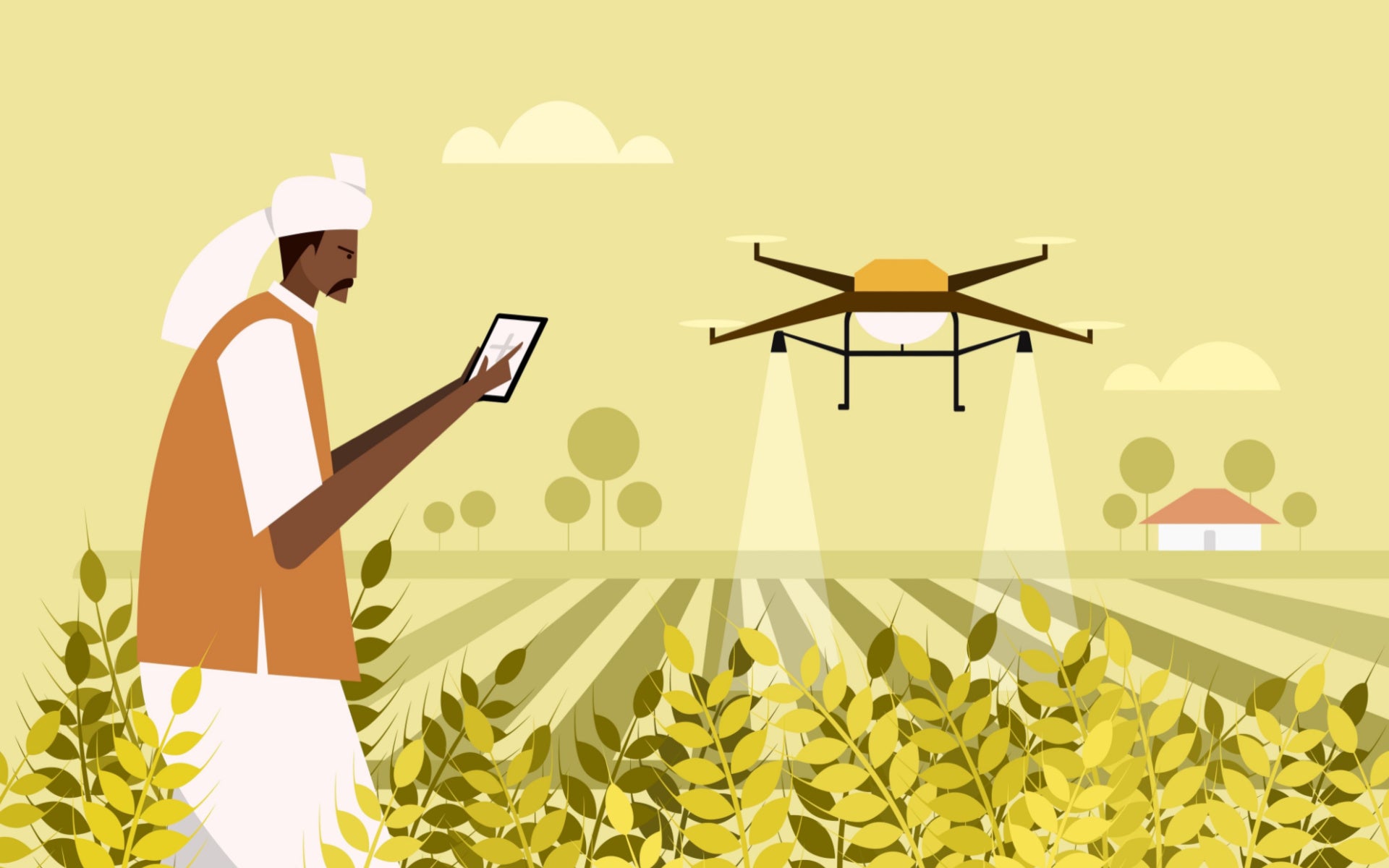
New policies, a ban on imports, and domestic production incentives will strengthen India’s drone ecosystem. To achieve the government’s aim of becoming a global drone hub by 2030, India must focus on innovation and technology disruption.
The Government of India introduced its Drone Rules, 2021 and revoked the Unmanned Aircraft System (UAS) Rules in March 2021 to ease the restrictive requirement for excessive licensing and permissions. The liberalized rules have reduced the paperwork and associated charges significantly, making it easier for users to afford and operate drones. The government has also allowed testing beyond visual line of sight (BVLOS) operations, which could benefit drone deliveries.
Strong government policies will foster growth in the market
Similarly, the state of Himachal Pradesh declared that under its 2022 drone policy it intends to offer incentives to drone manufacturers and support design, development, and services. The policy aims to ease the cost of doing business and boost innovation and R&D. The state also aims to promote startups under its startup policy.
To boost production, in September 2021, the central government introduced production-linked incentives (PLI) for drones and their components, offering $16 million in incentives for makers to attract investments from global brands.
In February 2022, the government banned the import of foreign-made drones to boost the number made in India. Additionally, the Union Budget 2022 emphasized the use of drones, with Kisan Drones and Drone Shakti pushing pilot certification in the agriculture sector. Furthermore, the government launched ‘NITI Aayog: Experience Studio on Drones’ in May 2022 to boost innovation. These initiatives will open the market for investments and innovation.
Improved hiring, investments, and deals are backed by relaxed drone policies
Business sentiment has improved since January 2022 following reforms in India. In May 2022, Adani Defence and Aerospace acquired a 50% stake in General Aeronautics, an agricultural drone startup, to expand its capabilities in commercial drones. NeoSky India, a subsidiary of RattanIndia Enterprises, a consumer micro drone business, acquired a 60% stake in Throttle Aerospace System, a manufacturing startup, in May 2022, to offer full-stack solutions.
How well do you really know your competitors?
Access the most comprehensive Company Profiles on the market, powered by GlobalData. Save hours of research. Gain competitive edge.

Thank you!
Your download email will arrive shortly
Not ready to buy yet? Download a free sample
We are confident about the unique quality of our Company Profiles. However, we want you to make the most beneficial decision for your business, so we offer a free sample that you can download by submitting the below form
By GlobalDataAs the industry grows in prominence in India, private equity firms are gaining confidence in it. In May 2022, DroneAcharya Aerial Innovations, raised $4.6 million in pre-seed funding from the capital market and influential personalities. In April 2022, drone manufacturer ideaForge Technology raised $20 million in series B funding led by Florintree, a private equity firm, for R&D, and global and team expansion.
Thanks to the lucrative monetary potential in the Indian market, manufacturers like Omnipresent Robot Tech and ideaForge are planning to double their employee headcount. India’s current Aviation Minister believes that the drone service sector will drive 0.1 million (one lakh) jobs in the next four to five years. Such sentiments are reinforcing business confidence and market growth.
India must bridge the supply and demand gap
Supply chain disruptions due to the pandemic and the ongoing Russo-Ukrainian War has forced countries to emphasize their supply chain to reduce operational risk. On the hardware side, the Indian government’s push to produce locally will help companies reduce their dependency on imports. India could also use its capabilities in avionics, specialized manufacturing, and materials engineering to gain a foothold in drone manufacturing.
On the software side, India must focus on offering industry-specific applications, given its competencies in the IT and ITeS sector. India must also emphasize innovation and technology disruption, given its strong startup ecosystem. Additionally, the security concerns posed by China-made drones puts India in a favorable position, which is reflected in the increasing export orders it is receiving for UAVs.






